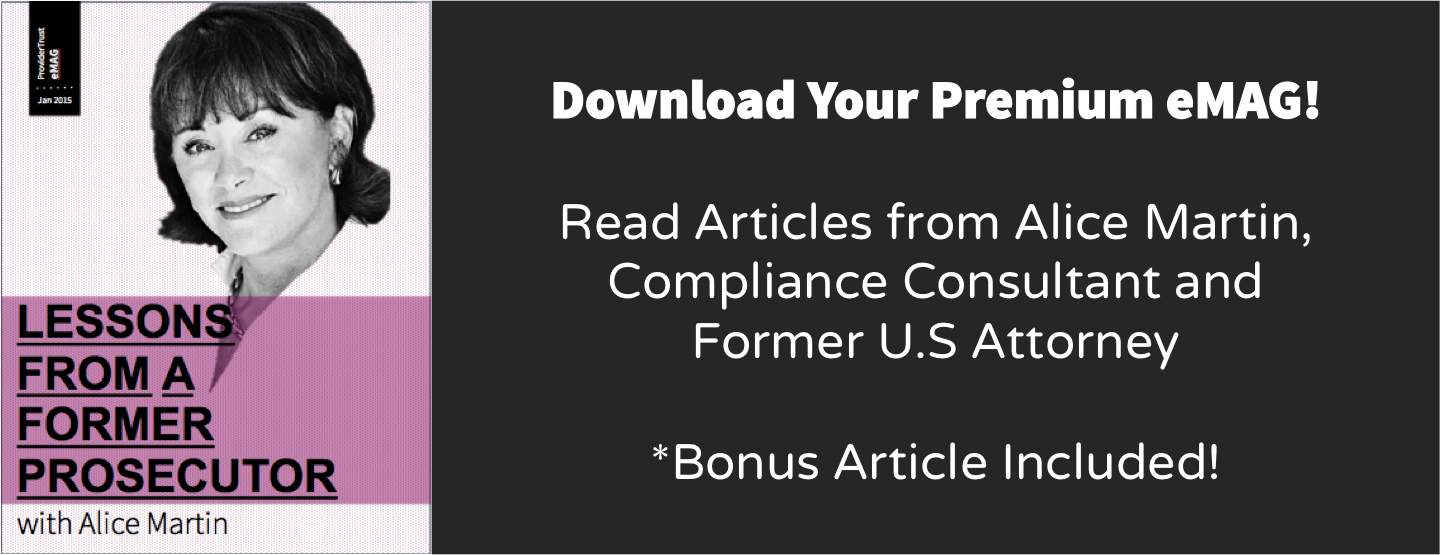I hope these 3 quick observations serve you and your organizations as you enter the New Year.
1. When You Find Issues
Regulators and prosecutors do not expect that you will ever find errors in your claims submission process or problems with your physician arrangements. I’ve had Directors express concern to me ‘aren’t we showing that we don’t have a strong program when we have multiple self-reports?’ I generally flip it around and remind the Director and management it is a ‘good thing’ when YOU find issues before a whistleblower or government entity alerts your entity to its issues.
“Effectiveness” is demonstrated by “outcome” and if the outcome is self-disclosure then your program is showing a positive outcome even if it means sending money back and feels negative. Now, it isn’t simply good enough to report and move on as if nothing has happened, and that is exactly why self-disclosure reports require a thorough report on how you found the problem and what you have done to ensure remediation and it will not reoccur.
So with the finding of any error should come a root cause analysis and positive fixes, and that should be solace for your Board and regulators that you are trying to get it right.
2. Can You Paint A Picture For Regulators?
Prosecutors do not understand the complexities of healthcare entities multiple operating systems. They may not understand how a simple ‘registration’ issue involving patient classification might lead to a large billing issue, and the fact that employees did not intend to defraud the Federal government is of no consequence. But that does not mean you should not fully explain the robust compliance efforts that are made in spite of this error. Your organization may receive up to a 95% reduction in fine and penalties under the Federal Sentencing Guidelines if your organization is able to demonstrate it has an effective compliance program.
So, can you paint that picture for regulators? Are you organized enough to show prosecutors your clear policies/procedures, and your monitoring and auditing activities directed toward your organization’s highest risk areas? Oftentimes much is taking place but there have been no comprehensive surveys of all the day-to-day monitoring activities taking place and when issues arise the Compliance Department is playing defense trying to gather this information together to paint a healthy picture of its program. Being able to demonstrate an effective compliance program is clearly the job of the compliance officer. Can you do it today?
3. Advocate For Your Organization
Should you find your organization in trouble I hope you will be prepared to speak on behalf of your organization and its efforts. When I was a U. S. Attorney it interested me if outside counsel worked to exclude the Healthcare Compliance Officer from discussions. When I was to decide, along with the OIG, whether to impose a corporate integrity agreement on an entity or give them a pass, I wanted to speak directly with the CO. A lot depends on that person, their influence within the organization and their ability to serve as ‘eyes and ears’ for regulators to ensure positive change does occur. I think any CO should be prepared to have that conversation and advocate for their organization. Too often you only see attorneys, not compliance professionals, engaged in negotiations. I think that is systematic of how highly placed a CO may be within an organization and it is very telling to this former prosecutor.
Good luck in your efforts, and Happy New Year!!
Written by: Alice Martin | Compliance Consultant and Former U.S Attorney
Like what you read? Download the eMAG below to read more from Alice. Be sure to share it with your friends, too!
You May Also Like:
7 Characteristics of an Effective Healthcare Compliance Officer
How Successful Healthcare Compliance Officers Prep for the New Year
The Top Healthcare Compliance Software Tools You Should Be Using
The 4 Biggest Complaints About Healthcare Compliance Software










